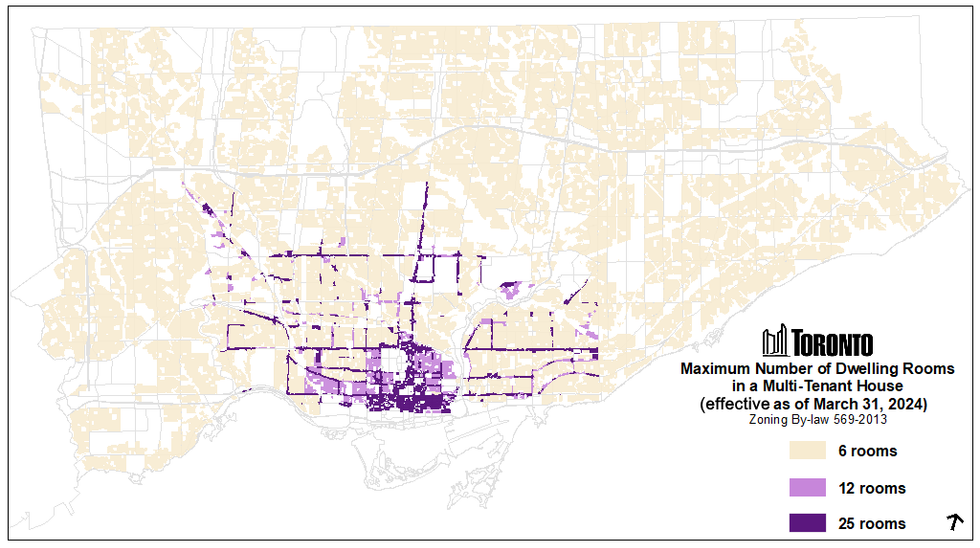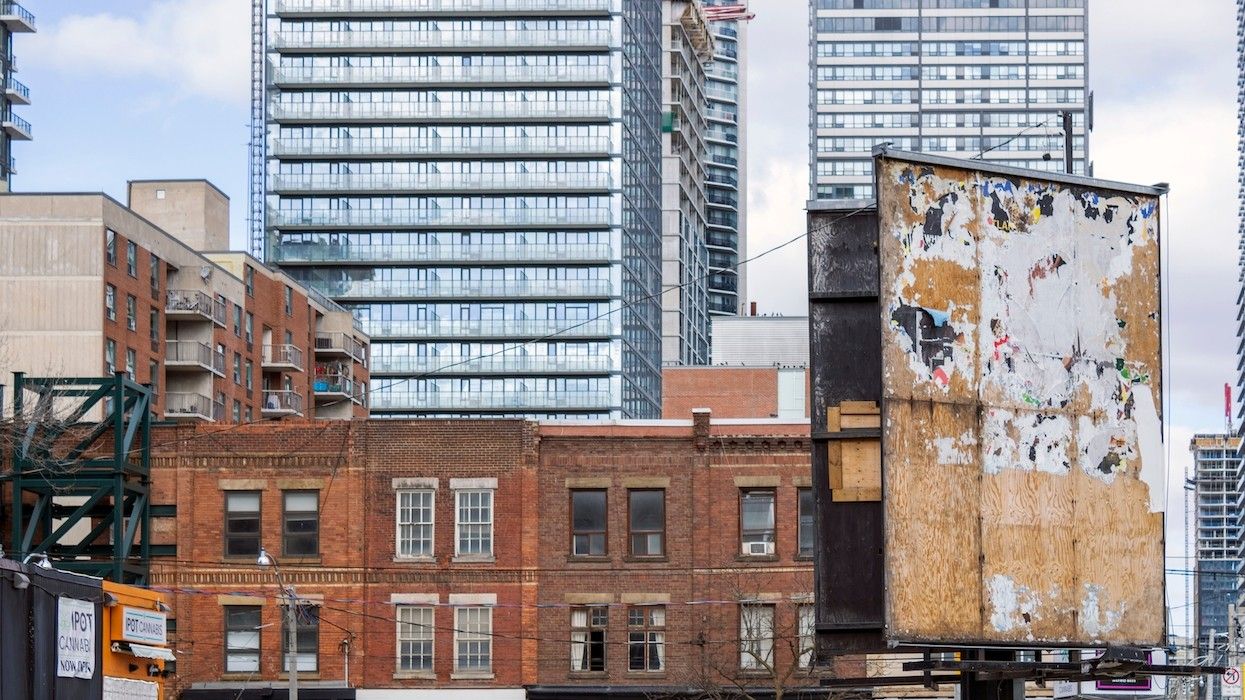It’s been just over a year since the City of Toronto adopted a (long-awaited) regulatory framework for multi-tenant houses, more colloquially known as rooming houses. The new framework, along with expanded, citywide allowances, will go into effect at the end of next month.
As it currently stands, rooming houses are only permitted in certain areas of the city, but as of March 31, 2024, that will change. Rooming houses with up to six dwelling rooms will be permitted across all of Toronto so long as the area is already zoned for residential use.
There are nuances to the new allowances worth noting, however.
According to guidelines provided on the City’s website, six rooms per house will be the maximum in Etobicoke, North York, and Scarborough, but there won’t be a hard and fast rule across the entire Toronto area. In Toronto proper, East York, and York, the maximum number of rooms permitted in one building will ultimately depend on existing zoning permissions.

Bearing in mind the rather seedy reputation that rooming houses have earned over the years, it makes sense that operators will be required to abide by a handful of new rules and compliance measures as of March 31 as well. These new rules and measures are being put into effect to help ensure rooming accommodations are safe and remain affordable, the City says.
The main thing to note is that all rooming house operators will be required to obtain a licence starting on March 31, 2024. To obtain a licence, operators will need to have a property maintenance plan, which will need to include processes for tenant service requests, pest management, and waste management and collection.
Operators will also need to adhere to parking requirements preset by the City, which call for at least two parking spaces per rooming house (with up to six units) unless the area is well-served by transit and well-connected to Toronto proper.
Meanwhile, the City will create a dedicated enforcement team, doll out steeper fines for property standard violations, and rolling out an engagement program to help educate owners, operators, tenants, and communities on the new regulations.
In addition, the updated framework calls for the development of a “multi-tenant house retrofit and repair program” geared at preserving rooming house affordability, as well as supports to be put in place for tenants facing eviction.
Generally defined by the City as buildings with four or more dwelling rooms and a shared washroom and kitchen, rooming houses are certainly not new or novel in Toronto, although the framework that legalizes them across the city is fairly recent. The framework was tabled in June 2021 but remained in limbo until Toronto City Council voted to adopt it in December 2022.
Many rooming houses have operated illegally for years in Toronto, so many councillors (and housing advocates alike) felt that the framework to legalize them was long overdue by the time the item was actually tabled in 2021. Before that, rooming houses had been a divisive topic at city hall for over a decade.
As mentioned, the new framework for rooming houses will go into effect at the end of March. In the meantime, the City will host an information session next week for anyone wanting to learn more about the new rules, the roles and responsibilities of operators, and the new licensing process. The session will be held on Wednesday, February 28, 2024, from 6:00 to 7:00 p.m. at North York Central Library.





















